Veterinary & Biosecurity
Bukedi Region Leaders Collectively Sensitize & Mobilize Residents on Parish Development Model: AFRISA Actively Participates in the Process
Published
3 years agoon
By
Mak Editor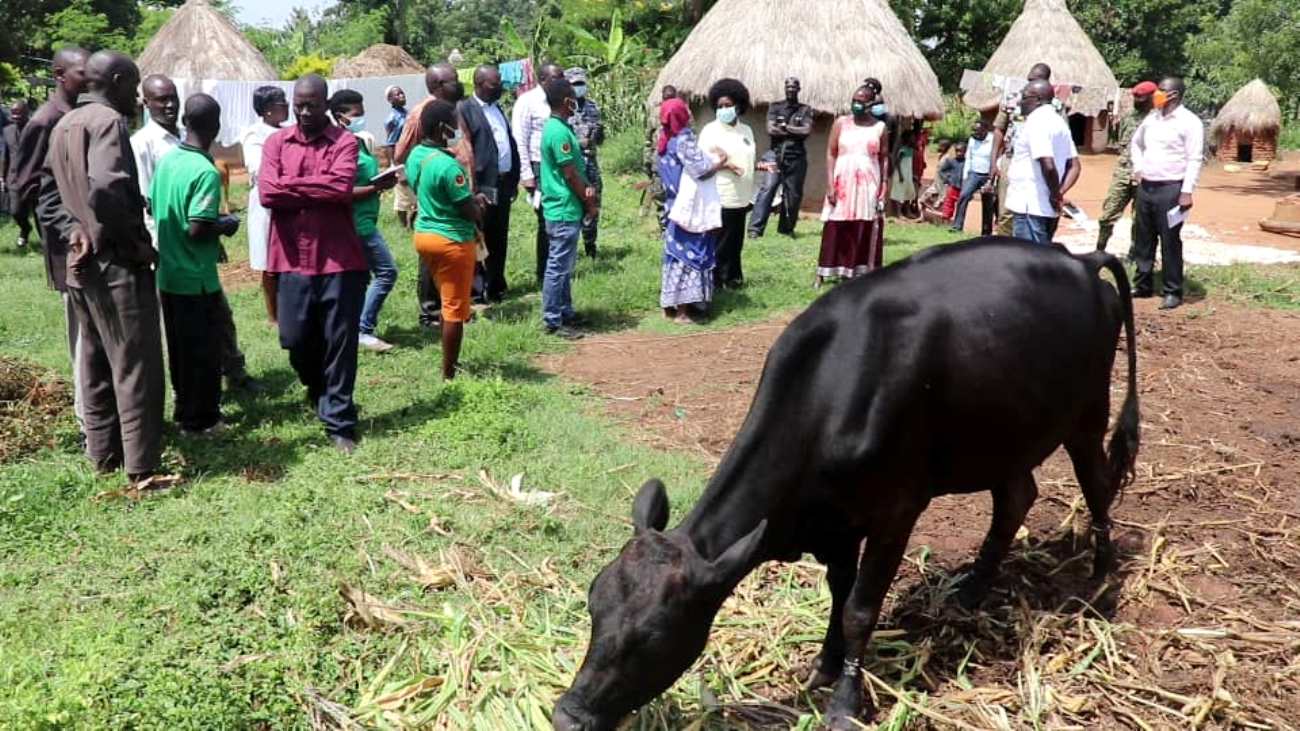
By Jacinta Nakaye
Bukedi region leaders carried out mobilization and sensitization exercises to enable residents in the region understand and embrace the Parish Development Model as an intervention to eradicate poverty in the country.
Spearheaded by Hon. Dr. Monica Musenero, Cabinet Minister for Science, Technology and Innovation, the leaders executed a couple of community mobilization and sensitization campaigns in different districts and parishes of the region. These exercises focused on mindset change of the residents in order for them to embrace the idea of enterprise development to increase household incomes from merely being subsistence producers.
These interventions entailed a visit by the State Dignitaries at the Model farmers’ household enterprises in Kaberekeke Parish, Petete Town Council, Butebo District on 22nd June, 2022, where the benchmarking processes for Parish Development Model (PDM) were undertaken. The visit at the Model Parish was to witness the transformationof farmers who benefited from the productivity acceleration trainings facilitated by the Africa Institute for Strategic Animal Resource Services and Development (AFRISA), College of Veterinary Medicine, Animal Resources and Biosecurity (CoVAB), Makerere University.
The PDM piloting phase in Kabererekeke Parish was under the support of Science, Technology and Innovation, Office of the President (STI- OP).
Visit to Kabererekeke Model Farmers’ household enterprises
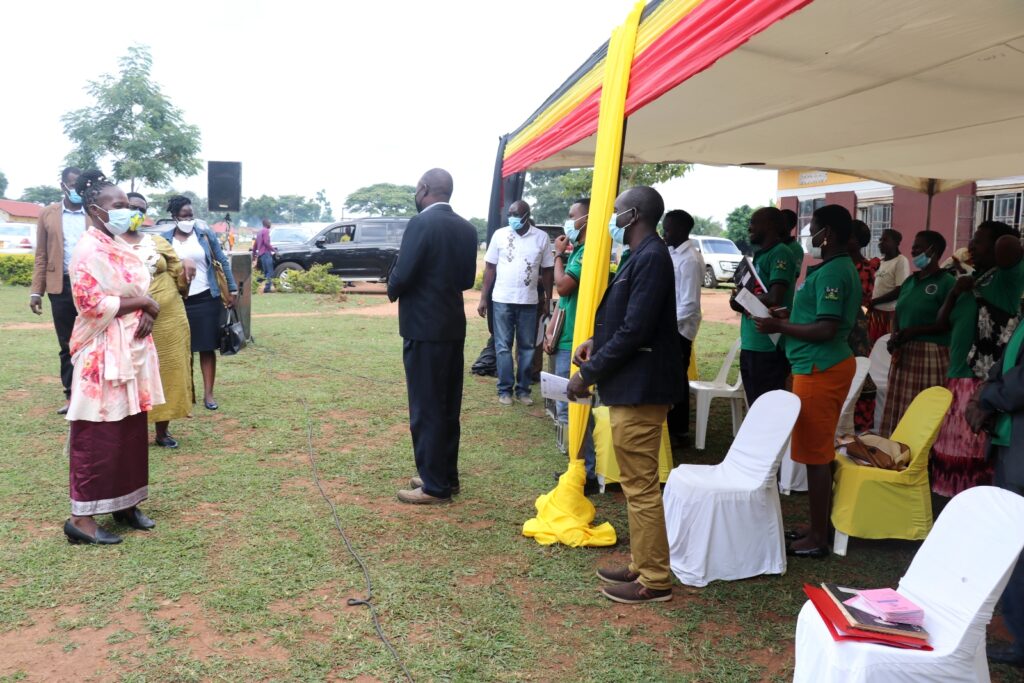
State Dignitaries visited the Model farmers in Kabererekeke Parish to witness the progress of their household enterprises and to undertake a benchmarking exercise on the functionality of PDM.
Dairy model farmer, Hajira reflected on her benefits from the productivity acceleration exercises facilitated by AFRISA during the demonstration phase of PDM in Kaberekeke.
“I previously had a cow of local breed and took a decision to sell it off so that I buy another which could give me some more litres of milk. Fortunately, the money I got from selling my previous cow was just enough for me to buy a better one. I got a new cow, but it was only producing 3 litres of milk,” narrates Hajira. She added that, “on participating in the productivity acceleration trainings on livestock nutrition facilitated by AFRISA, I decided to change my cow’s mode of feeding. Within a period of only one month, my cow currently produces 5 litres of milk. I now make some more money from selling milk.” Hajira further testified that she currently sells off 4litres of milk and remains with 1litre for home consumption.
Poultry model farmer; Wanyana Sarah also highlighted on her benefits from the productivity acceleration trainings.
“With training from AFRISA, I learnt the practice of synchronized hatching and brooding of chicks. Synchronized hatching has swiftly enabled the multiplication of my chicken and it has helped us to take care of these birds very well; I am able to vaccinate the chicks at ago. I started with 10 chicken, but currently I have 30,” testified Wanyana.
Piggery Model Farmer, Yoko Lam also reflected on his benefits.
Yoko reported that from the productivity acceleration trainings of the PDM piloting phase, he managed to construct shelter for his pig using local technology, with guidance from the AFRISA Piggery Value Chain Programme Officer, Mr. Bwire Jolly Muchere, who facilitated piggery enterprise trainings while in Kaberekeke Parish.
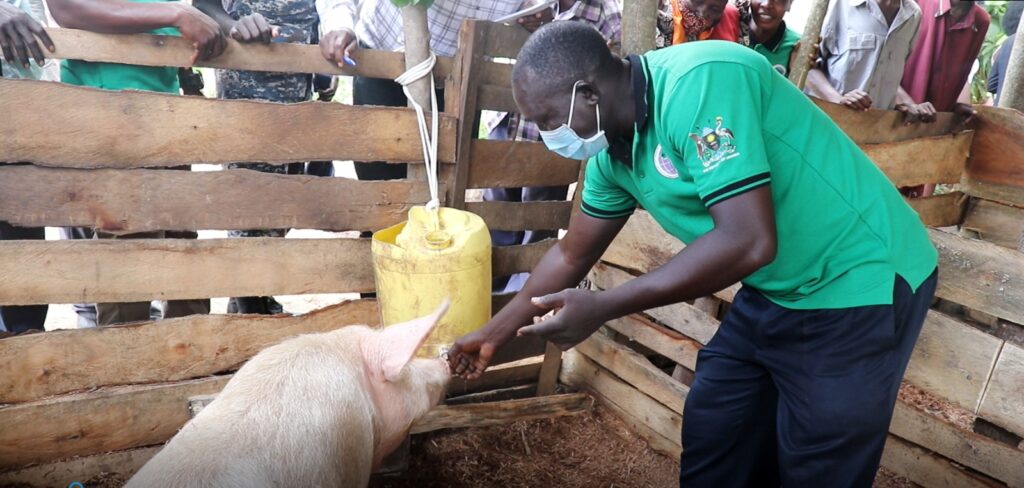
He further reports that each household in Kaberekeke, within piggery value chain is set to construct a similar shelter for the pigs. Mr. Yoko also recalls the challenges he used to face in pig farming before the training.
“I had no idea about proper nutrition for pigs and used to gather some grass to feed my pig,” he recollects, adding that, “however, I got knowledge on proper feeding of pigs. Now, I have been using nutrition boosters with support from AFRISA to improve the quality of my animal. I expect it to have eight piglets, if I decide to sell off each piglet at two hundred thousand Ugandan Shillings; I can raise good money from this enterprise,” he asserts.
The community mobilization
The leaders of the region were later engaged in the Parish Development Model planning meeting, which was held at St. Paul High School, Petete, Butebo District. The meeting was for the leaders to caucus and roll out the mobilization process throughout the region’s seven districts and twenty-two constituencies. The meeting was to also benchmark from the Kabererekeke Model Parish where the PDM demonstration was undertaken.
During an interview with Hon. Dr. Musenero, she called for unity among leaders in order to drive development in the region.
“In the past, leaders from Bukedi region have not worked closely very well with each other, but this time, we are coming together. We really want to work as a team and this activity is setting us off. We have sat as members of the caucus and need to galvanize to work as a solid team. We need to have an agreed upon vision for the region and must develop an implementation plan,” she said.
Bukedi region comprises of seven districts, which include; Budaka, Butebo, Butaleja, Pallisa, Tororo, Busia, and Kibuku, all in which residents were involved in the mobilization and sensitization exercises on PDM.
During an interview with Hon. Richard Oseku, Member of Parliament representing Kibale County, Palisa District, who doubles as Chairperson of Bukedi Parliamentary Caucus, he appealed to the Government of Uganda for an affirmative approach towards Bukedi in regards to poverty eradication, given that the region is considered as one of the poorest in the county.
“Bukedi region falls among the poorest in the whole country, therefore at national level, H.E. the President of the Republic of Uganda has mainstreamed Bukedi as one that needs to be attended to. However, Parish Development Model is a general program for the whole country and there’s nothing as affirmative action specified for Bukedi,” said Hon. Oseku.
He added that, “besides the normal programs that are being implemented across the whole country, there is need to think of an affirmative action in order to transform Bukedi from the majority poor to household income earners and manage their livelihood fares.”
Bukedi region PDM sensitization and mobilization exercises commenced on 23rd June, 2022. These conventions brought together Ministers, Members of Parliament, the region’s residents, leaders at Local Government level (RDCs, LCs, Councilors, Sub county chiefs, and Parish Chiefs among others), technical teams from Science, Technology and Innovation- Office of the President (STI-OP), and Africa Institute for Strategic Animal Resource Services and Development (AFRISA), religious leaders and the Police.
The leaders emphasized mindset change of their communities to make them understand the benefits of owning household enterprises, which is to increase household incomes.
The PDM target is to move 39% of the households out of subsistence production into the money economy in the next five years. 10% support is directed to the elderly, 10% to people with disabilities, 30% to women, 30% to youth, and 20% to the men.
PICTORIAL
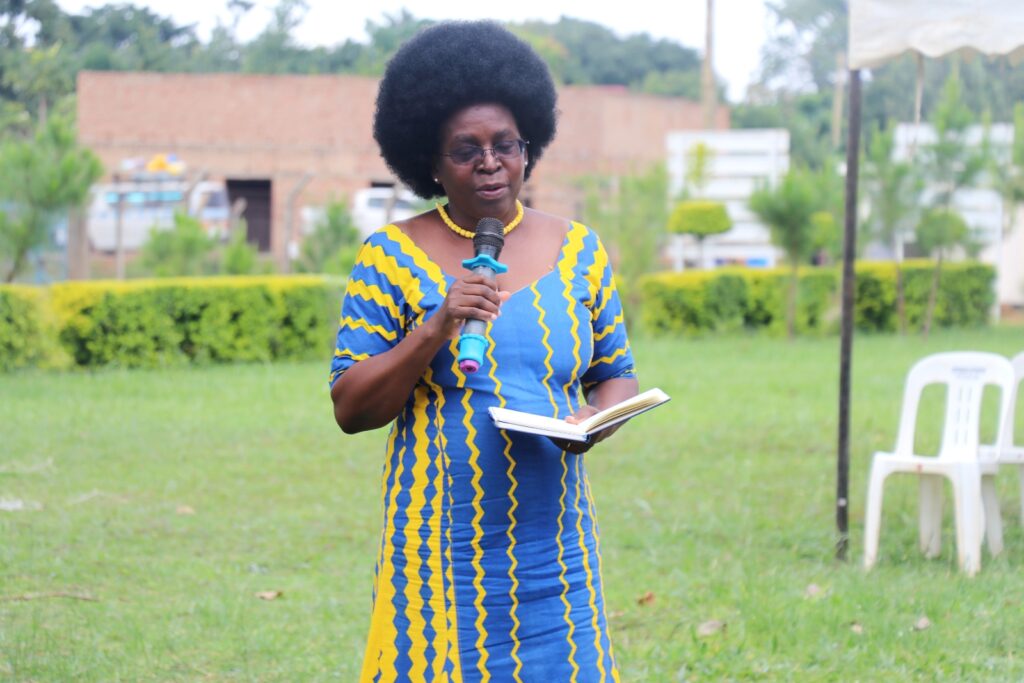
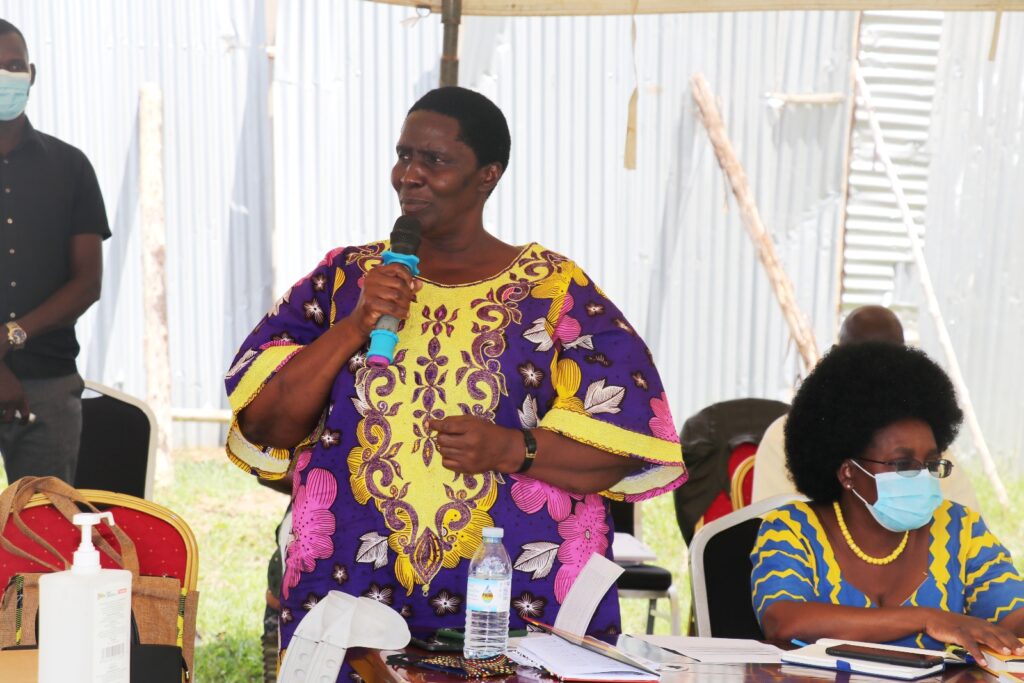
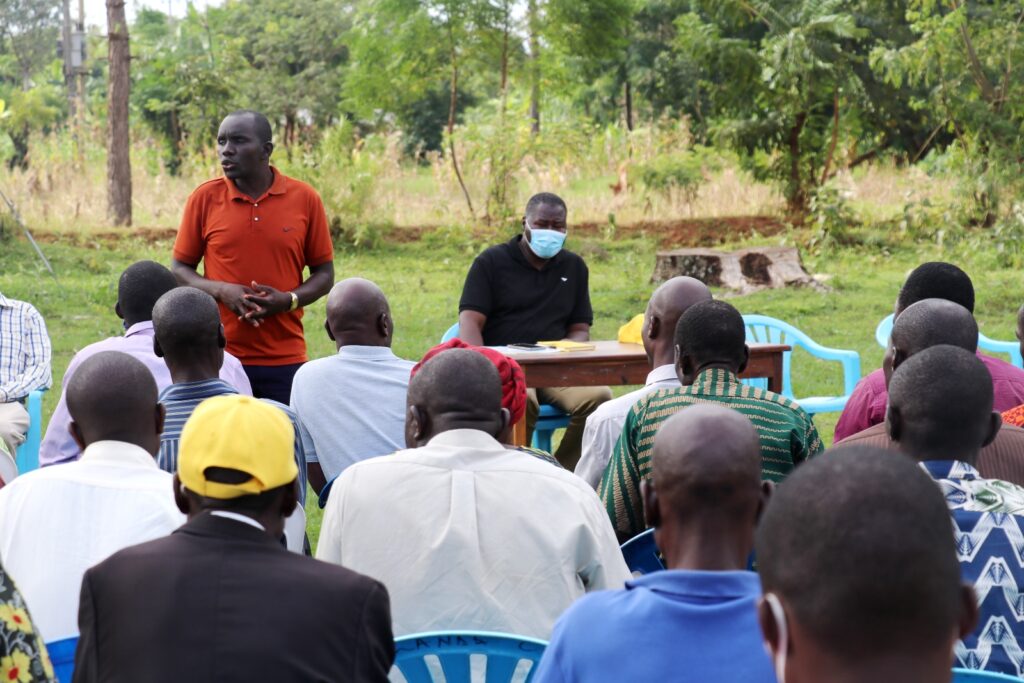
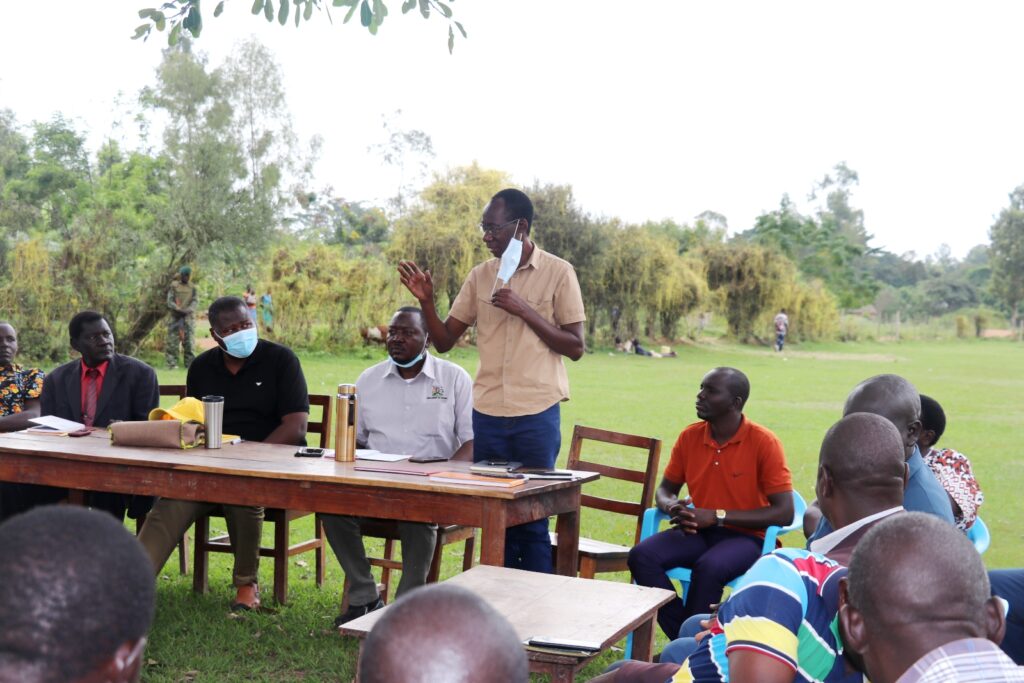
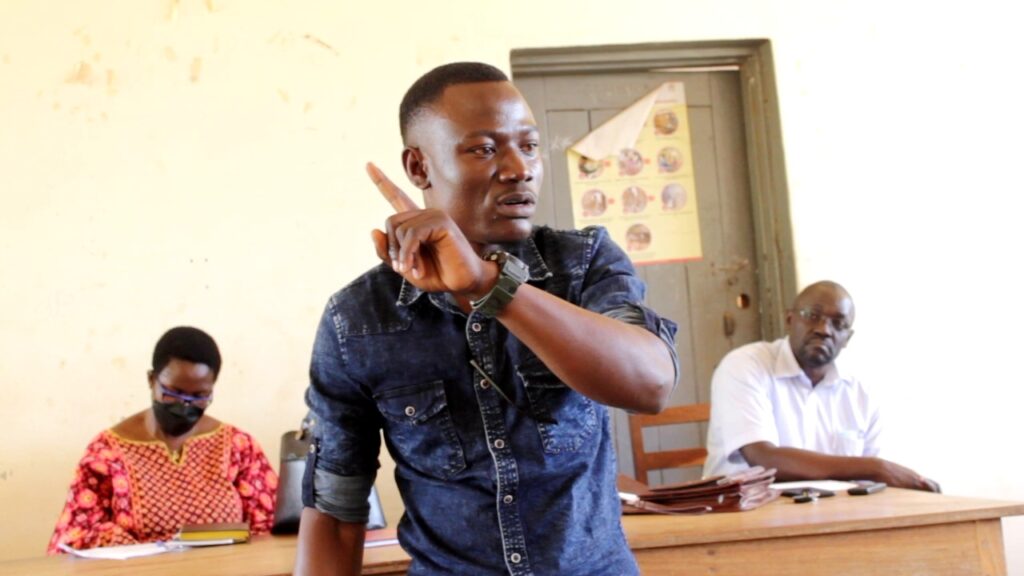
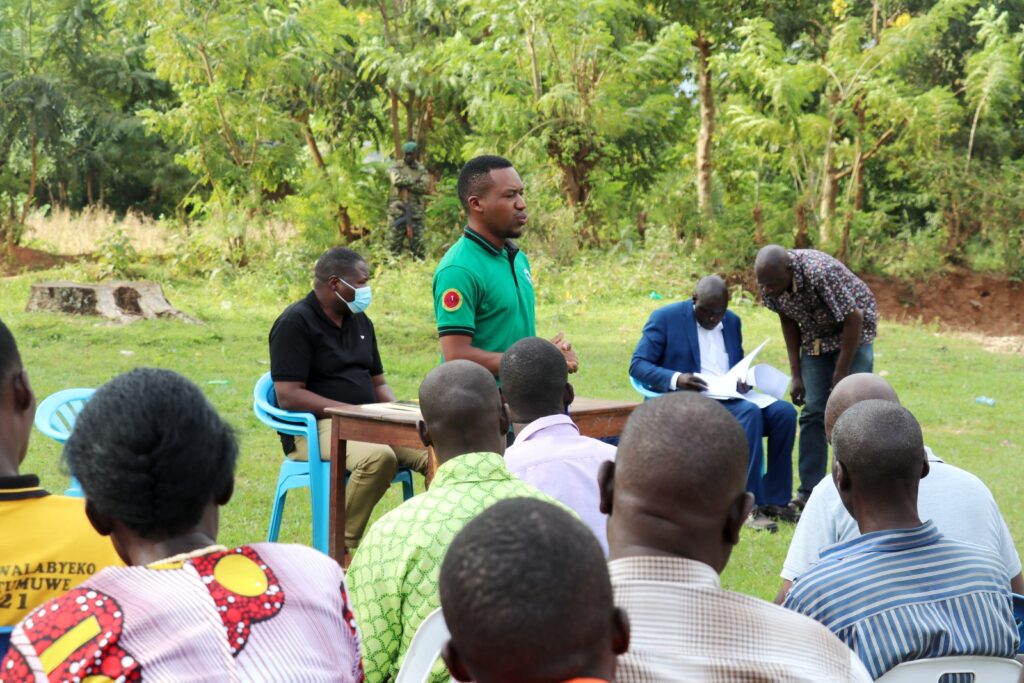
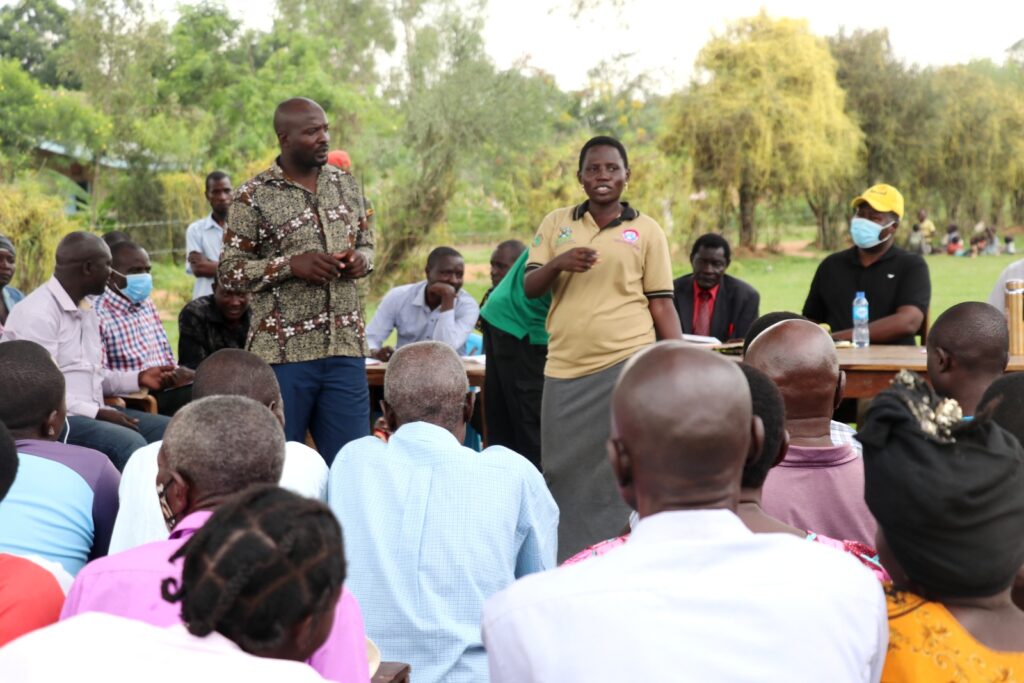
You may like
-


Simplicity, Service & Scholarship: Hallmarks of Professor Livingstone Luboobi’s Legacy
-


EfD-Mak Holds 2nd Advisory Board Meeting: Charts Path for Growth
-


Public University Legal and Accounting Officers Trained on Governance and Compliance
-


Celebrating the Life of Prof. Livingstone Sserwadda Luboobi
-


Fare Thee Well Prof. Luboobi
-


Strengthening Grants Management Through Institutional Collaboration and Capacity Building
Veterinary & Biosecurity
CoVAB Annual Report 2024
Published
3 weeks agoon
June 30, 2025By
Mak Editor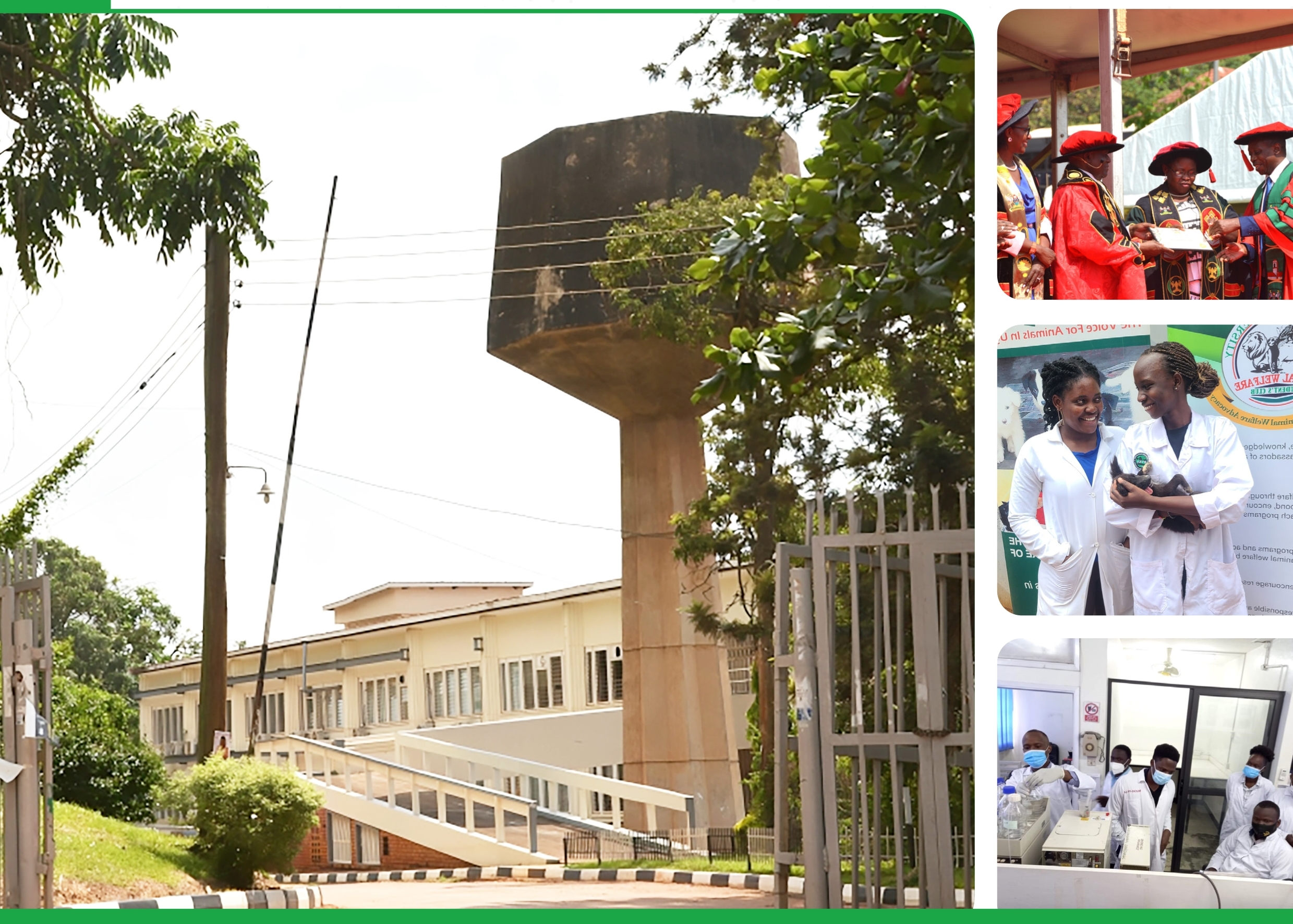
It is my pleasure to share the Annual Report for the year 2024, highlighting the various milestones realized in the College of Veterinary Medicine, Animal Resources, and Biosecurity. First and foremost, I wish to congratulate all of us for the dedication and effort rendered in the running of the college during the period. This collective commitment enabled us to excel in several areas, in line with the mandate of the college and Makerere University at large.
Our mandate teaching and learning, research and innovation, as well as knowledge transfer and partnerships, has been diligently pursued through the concerted efforts of all stakeholders, students, teaching staff, administrative teams, and valued partners. The college takes pride in the contributions made by our partners, who continue to support us in fulfilling this mandate. We particularly appreciate Norbrook (U) Ltd, which has consistently recognized the best-performing veterinary students with cash prizes annually since 2021.
Among the key achievements in 2024 was the expansion of research facilities at CoVAB. The college successfully established new, state-of-the-art laboratories, including an advanced Biomarker Discovery and Translation Research Laboratory, which continues to lead in developing point-of-care diagnostic kits for infectious and noncommunicable diseases, including cancer. The Biomarker Discovery and Translation Research Laboratory at CoVAB represents a significant leap in biomedical research and innovation. This state-of-the-art facility is dedicated to identifying and translating biomarkers into point-of-care diagnostic kits for both infectious and non-communicable diseases, including cancer. In this regard, CoVAB is poised to make tremendous contributions and impacts in advanced diagnostic development through rapid, accessible, and cost-effective diagnostic tools that can be used in both human and veterinary medicine, thereby contributing to improving early disease detection and treatment outcomes.
In the area of interdisciplinary research, the laboratory fosters collaboration among veterinary scientists, medical researchers, and biotechnologists, ensuring a holistic approach to disease management. Given the increasing prevalence of zoonotic diseases, the lab plays a crucial role in bridging veterinary and human health research, contributing to global health security and supporting One Health initiatives. Other achievements at the college are visible in groundbreaking research projects, with several initiatives launched, including studies on zoonotic disease prevention, vaccine development, and drug action mechanisms.
In the area of community outreach, the college expanded its livestock health programs, providing veterinary services to rural communities and enhancing disease surveillance. This is coupled with the increased international Collaborations where CoVAB strengthened partnerships with global institutions, securing funding for One Health initiatives aimed at tackling emerging health challenges.
These advancements and more not mentioned strategically position CoVAB and Makerere University as key players in addressing major animal and human health challenges, particularly zoonotic diseases, which constitute a significant proportion of emerging and reemerging infectious diseases.
The achievements highlighted in this report would not have been possible without the unwavering support, dedication, and collaboration of various stakeholders. We extend our heartfelt gratitude to our students, who are the backbone of our academic community, and whose commitment to learning, research, and innovation continues to propel CoVAB to greater heights. The dedication of our lecturers, researchers, and administrators has been instrumental in driving the college’s mandate forward. Your passion for education, mentorship, and scientific discovery is deeply appreciated. The partners and collaborators, including institutions, organizations, and industry stakeholders such as Norbrook (U) Ltd, have supported our initiatives and strengthened our capacity through funding, knowledge exchange, and collaborative projects. Your contributions are invaluable.
Together, these contributions have made 2024 a truly remarkable year for CoVAB. As we move forward, we remain committed to strengthening these partnerships and building on our shared successes. Thank you for being part of our journey. As we move forward, we anticipate an even more successful period ahead, and together, we shall achieve all that we set out to do.
Prof. Frank Norbert Mwiine
PRINCIPAL
Research
Mak and MSU Host Landmark Symposium on Insects for Food, Feed, and Food Security in Africa
Published
1 month agoon
June 10, 2025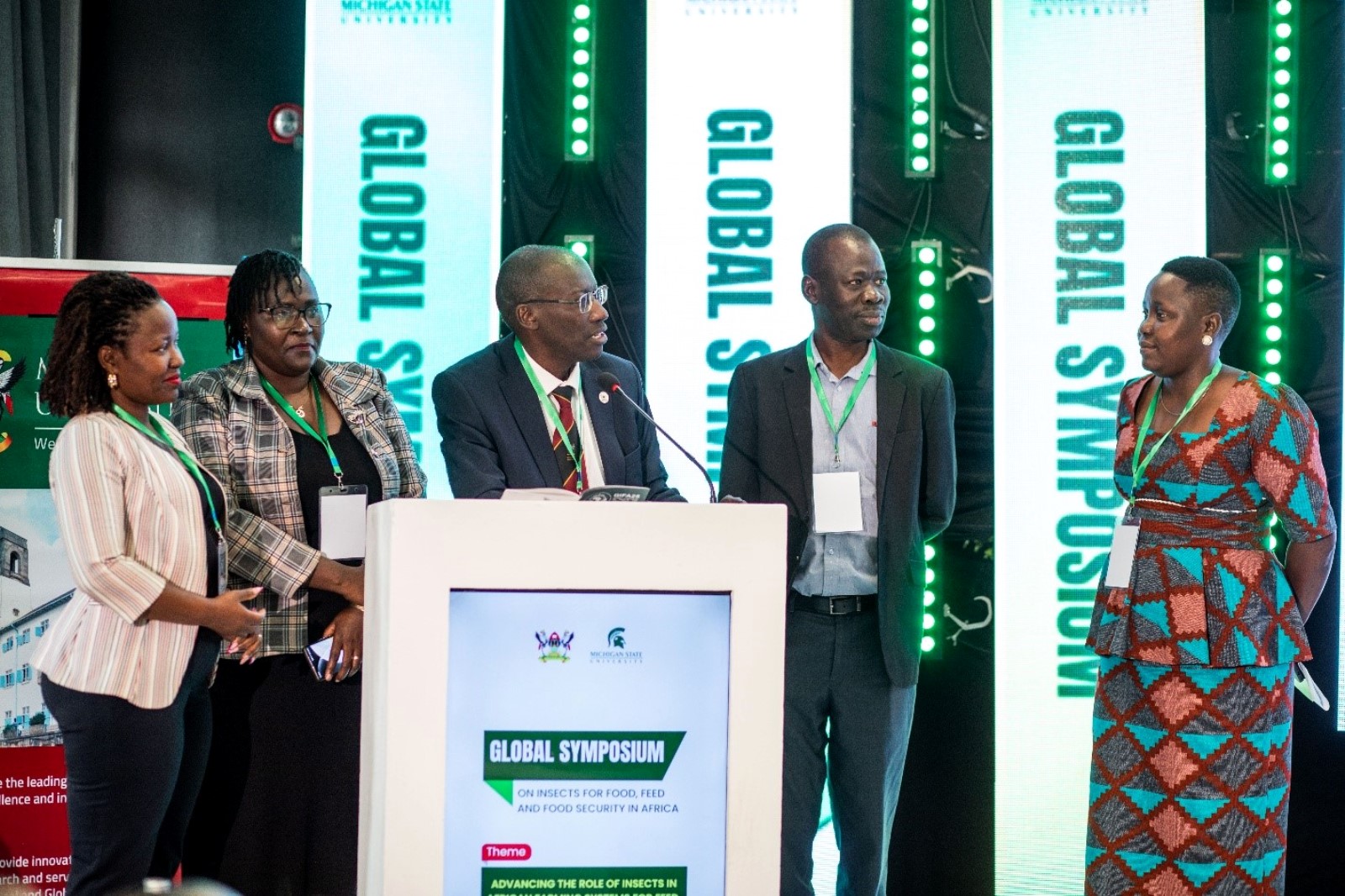
A groundbreaking symposium exploring the role of insects in African farming systems concluded on June 6th, 2025, at Onomo Hotel in Kampala. Convened by Makerere University’s College of Veterinary Medicine, Animal Resources and Biosecurity (CoVAB) in collaboration with Michigan State University (MSU), the event drew participants from over ten countries, including researchers, development experts, regulators, and practitioners.
Under the theme “Advancing the Role of Insects in African Farming Systems for Feed, Food, and Food Security,” the two-day gathering aimed to share knowledge and experiences on integrating insects into food and feed systems to address food security challenges across the continent. The discussions revolved around four key sub-themes namely; Insects as animal feed to promote sustainable livestock production and livelihoods; Insects for human food and food security, including indigenous insect-based diets; Insects for improved soil health and crop production and Commercialization of insect farming, with a focus on regulation and standardization.
The symposium commenced with opening remarks delivered on behalf of Makerere University’s Vice Chancellor, Prof. Barnabas Nawangwe, by his representative, Prof. Frank Norbert Mwiine, Principal of CoVAB. He welcomed participants and commended Dr. Deborah Amulen, Lecturer at CoVAB and chief convener, for organizing a well thought out event. He emphasized that the symposium would not only raise awareness of the role of insects in Uganda’s and Africa’s socio-economic development but also help place insects on the agenda for broader discussions and integration into food security strategies. He said the event served as a platform for knowledge exchange, highlighting the untapped potential of insect farming in transforming food security, sustainable agriculture, and economic growth.
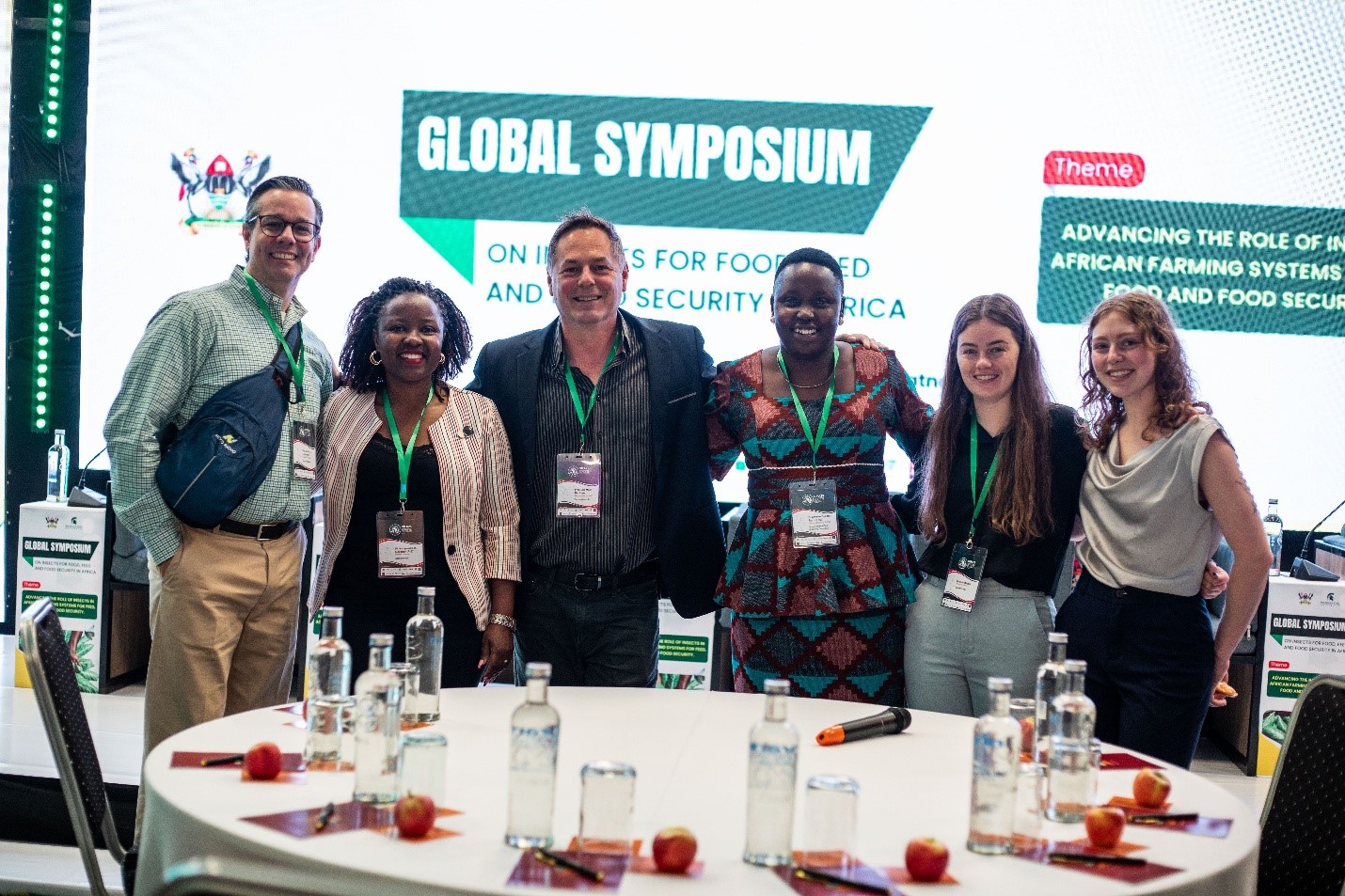
Key facilitators at the symposium were esteemed experts from leading institutions worldwide, who shared their insights on insect-based food systems and sustainable agriculture. Among the distinguished speakers were Prof. Jeffrey K. Tomberlin from Texas A&M University, Prof. Eric M. Benbow from Michigan State University, Prof. Florence Dunkel from Montana State University, Dr. Denise Beesigamukama, a Postdoctoral Fellow, ICIPE Kenya and Dr. Deborah Amulen the host from Makerere University. These are exemplified in their contribution towards academic research and leadership, policy and industry impact and more importantly their expertise in insect science.
During the deliberations, the experts emphasized that insects offer a viable, sustainable, and nutrient-rich solution to Africa’s growing food demands. The event underscored ongoing research and commercialization efforts aimed at mainstreaming insect farming into the agricultural sector. As global interest in alternative protein sources continues to rise, the symposium marked a significant step toward harnessing the potential of insects to enhance food security in Africa.
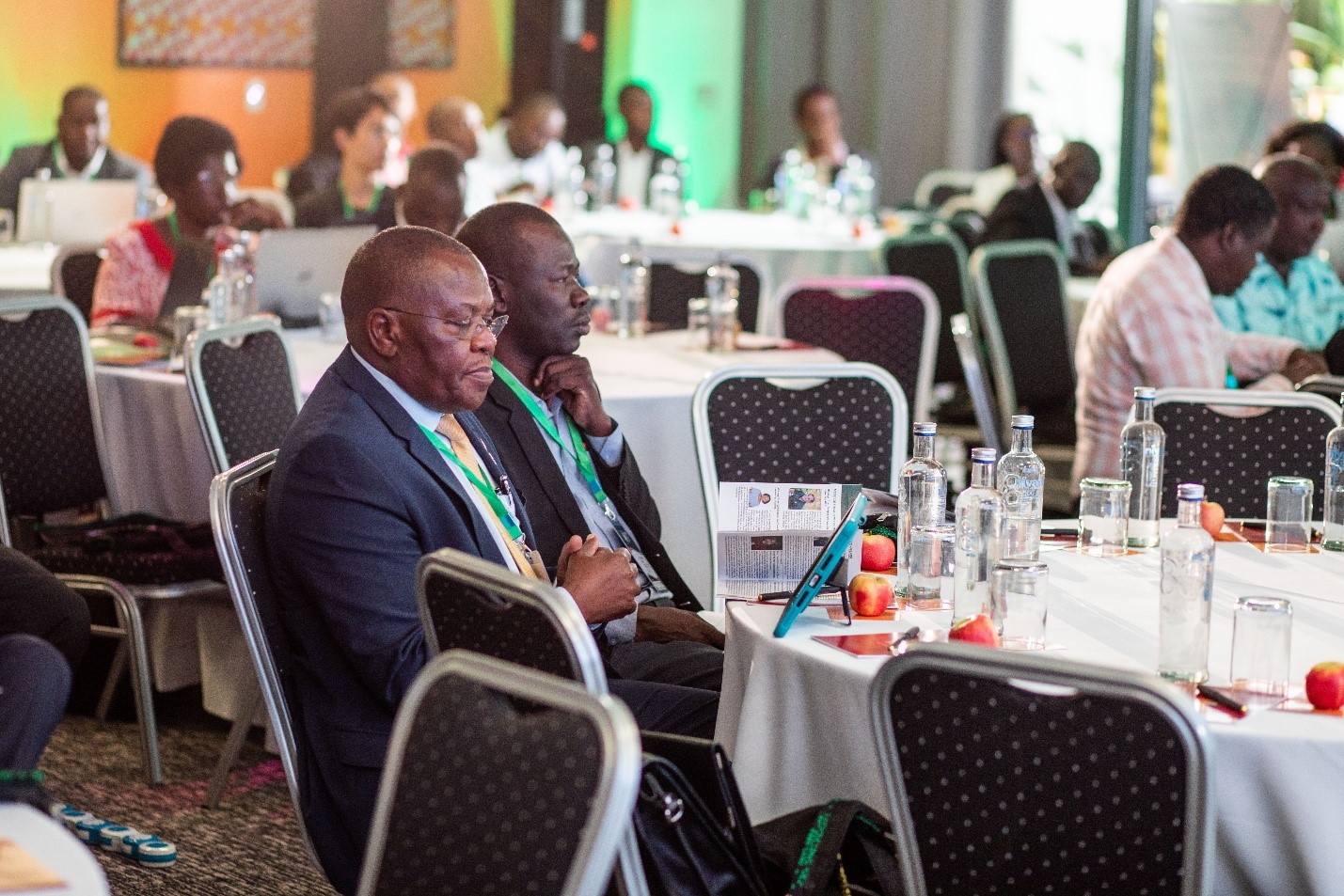
Experts underscored that Africa is home to over 470 recognized edible insect species, providing a rich source of proteins, fats, and essential micronutrients. Insects have historically been a staple in diets across Uganda, Southern Africa, and other regions, serving as a vital food source in times of drought, conflict, and food scarcity. One of the most discussed innovations at the event was the large-scale farming of Black Soldier Fly, which is being utilized to produce not only the larvae but also frass, a high-protein animal feed and organic fertilizer to enhance soil health and boost agricultural yields.
Several scholars presented their research in the area of Insects, where together with the farmers, industry representatives, policy makers and practitioners contributed valuable perspectives on advancing the role of insects in food security, animal feed, and ecological sustainability in Africa. Their discussions underscored the importance of research, policy, and commercialization in expanding insect farming across the continent.
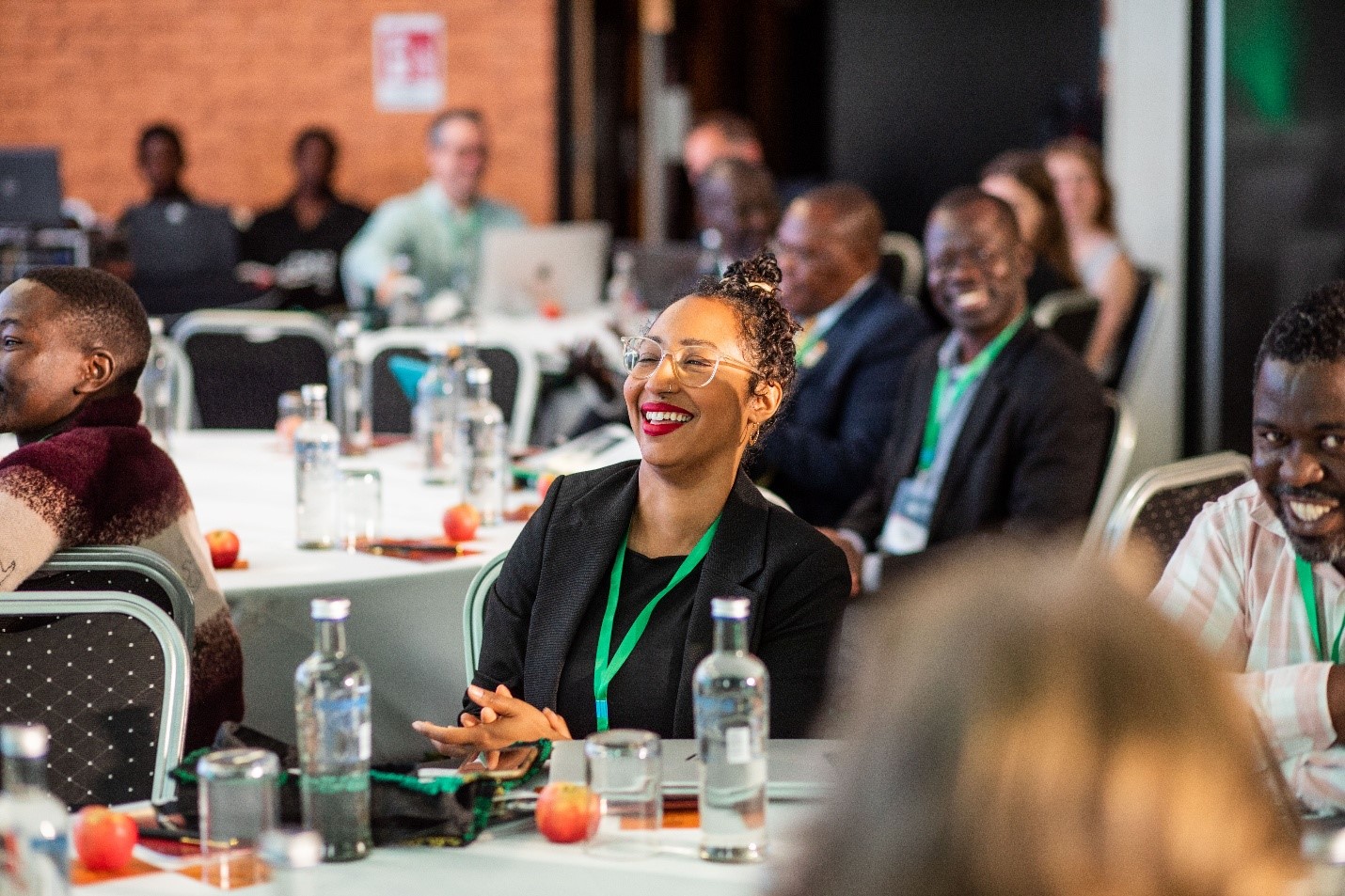
One of the keynote discussions highlighted Uganda’s rich tradition of consuming insects as part of its food culture, reinforcing their significance in nutrition and sustainability. Participants shared insights on local insect consumption practices and their role in livelihoods, drawing from countries like Cameroon, Malawi and many others represented at the event. The forum also featured representatives from key institutions, including the National Council for Science and Technology and The National Agricultural Research Organization (NARO) which contributed perspectives on research, policy development, and commercialization of insects as sustainable food sources, the Ministry for Agriculture, Animal Industry, and Fisheries (MAAIF), emphasizing the Ugandan government’s support for insect farming initiatives.
The Kenya based scientific research institute, the International Centre of Insect Physiology and Ecology (ICIPE) played a key role in the discourse and exhibited several innovations arising from research and their work in insects. Experts explored how insects can revolutionize animal feed production, providing an affordable, high-protein alternative to conventional sources.
With global attention shifting toward alternative and sustainable food sources, experts stressed the need for policy standardization and enhanced investment in insect-based food systems across Africa. During the event, MAAIF announced a $325 million investment through a six-year Smart Agriculture Transformation Project, aimed at expanding sustainable farming practices, reducing environmental impact, and increasing food security through alternative protein sources.
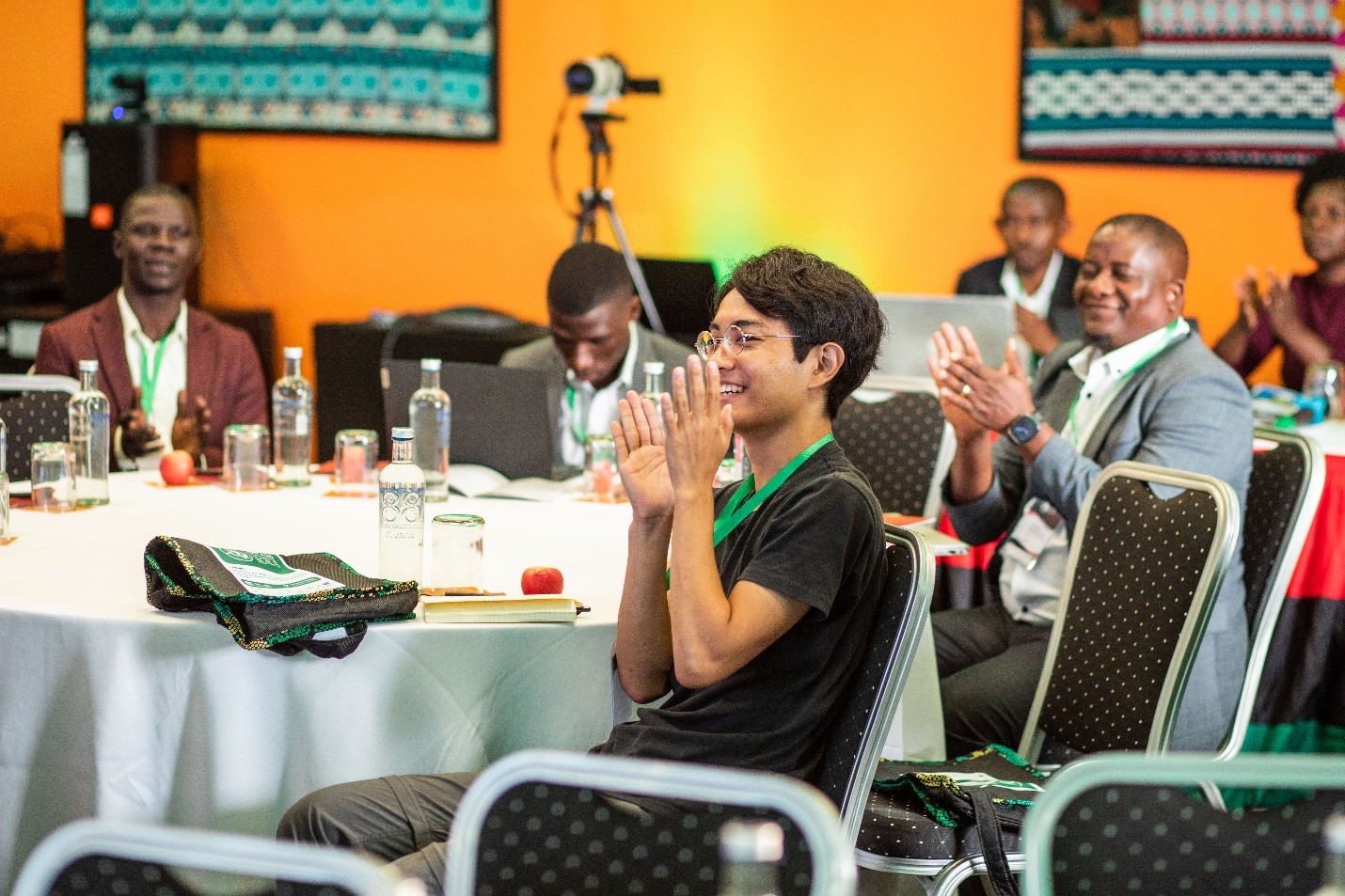
The symposium reaffirmed Africa’s position at the forefront of insect farming research, with discussions centered on scaling production, improving regulation, and leveraging indigenous knowledge for food security solutions. Moving forward, participants emphasized the importance of quality control, standardization, and policy frameworks to ensure safety, scale production, and boost market competitiveness. With Uganda leading discussions on alternative protein sources, the symposium laid the foundation for future innovations in agriculture.
Veterinary & Biosecurity
Makerere Receives Scientific Equipment worth over UGX 1.4 Billion
Published
1 month agoon
June 10, 2025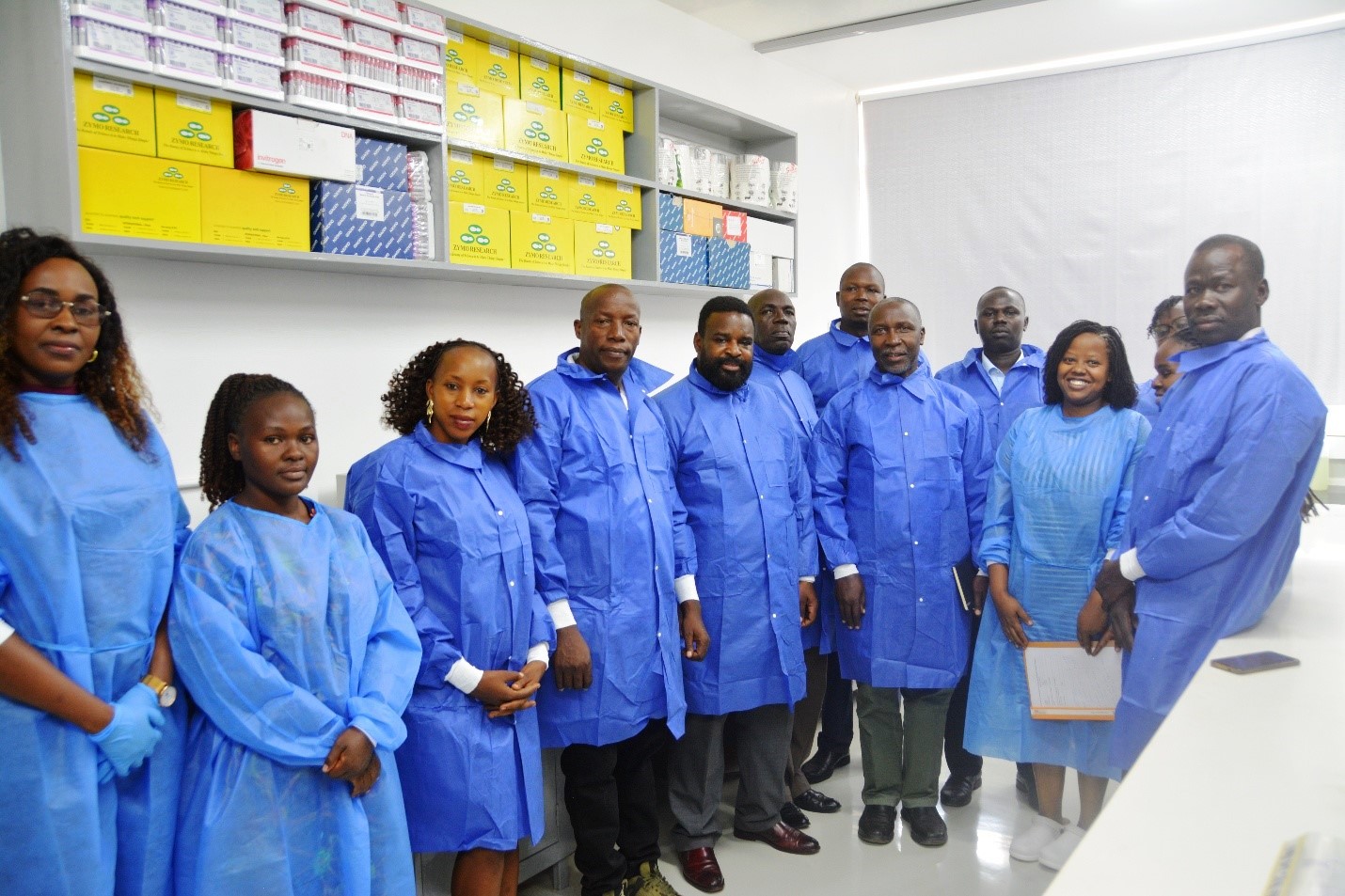
Makerere University has secured a valuable donation of scientific laboratory equipment worth USD 400,000 (Shs. 1.4 billion) through the Seeding Labs’ Instrumental Access Program. This equipment will significantly enhance teaching, research, and diagnostic services at the College of Veterinary Medicine, Animal Resources and Biosecurity (CoVAB).
Following the announcement of a successful application in May 2024, Makerere joins a global network of 137 institutions across 39 countries, gaining access to advanced tools that will elevate STEM education and innovation. This development strengthens the university’s commitment to scientific excellence and fosters collaboration in veterinary medicine and related fields.
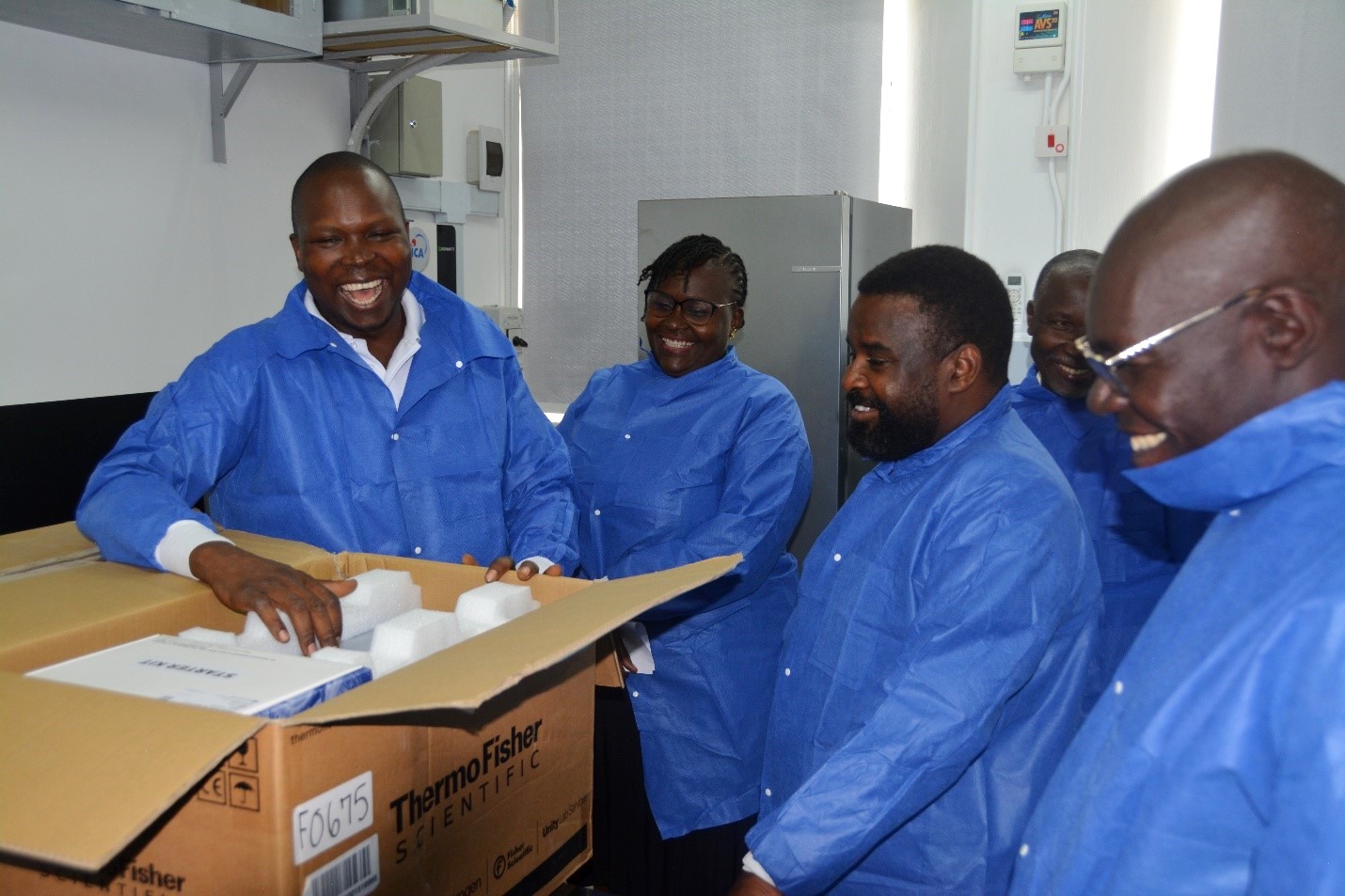
The consignment was received at the College of Veterinary Medicine, Animal Resources and Biosecurity and witnessed by Prof. Edward Wamala, who represented the Vice Chancellor, Prof. Barnabas Nawangwe. In his remarks, Prof. Wamala described the newly acquired scientific equipment as a significant milestone in Makerere University‘s pursuit of academic excellence, innovation, and impactful research. He emphasized its transformative role in strengthening research infrastructure, advancing ongoing scientific inquiry, and empowering both students and faculty to engage in high-impact studies.
Expressing appreciation to Seeding Labs’ Instrumental Access Program for their partnership, he underscored that this contribution was more than a donation, rather an investment in the future of Uganda and Africa at large. He highlighted that the support reflects confidence in Makerere’s students and scientists, recognizing their responsibility to address pressing global challenges in animal health, biosecurity, and public health.
Prof. Wamala further noted that the College of Veterinary Medicine, Animal Resources, and Biosecurity plays a vital role in addressing issues at the intersection of human, animal, and environmental health which is the core of the One Health approach that is emphasized today. With the newly acquired equipment, the college’s capacity will be greatly enhanced, improving diagnostic capabilities, supporting the livestock industry, and contributing to disease surveillance efforts at both local and national levels, he noted.
The Deputy Principal CoVAB, Assoc. Prof. James Okwee-Acai said the equipment received is a significant milestone in the college in its efforts to strengthen science and research capacity. He commended the management of Makerere University for the contribution and support that enabled the shipment and clearance of the consignment. While commenting about the equipment contained in the donation, Prof. Acai said many of items were state-of-the-art and would definitely boost the work of teaching and learning at the college across the two schools.
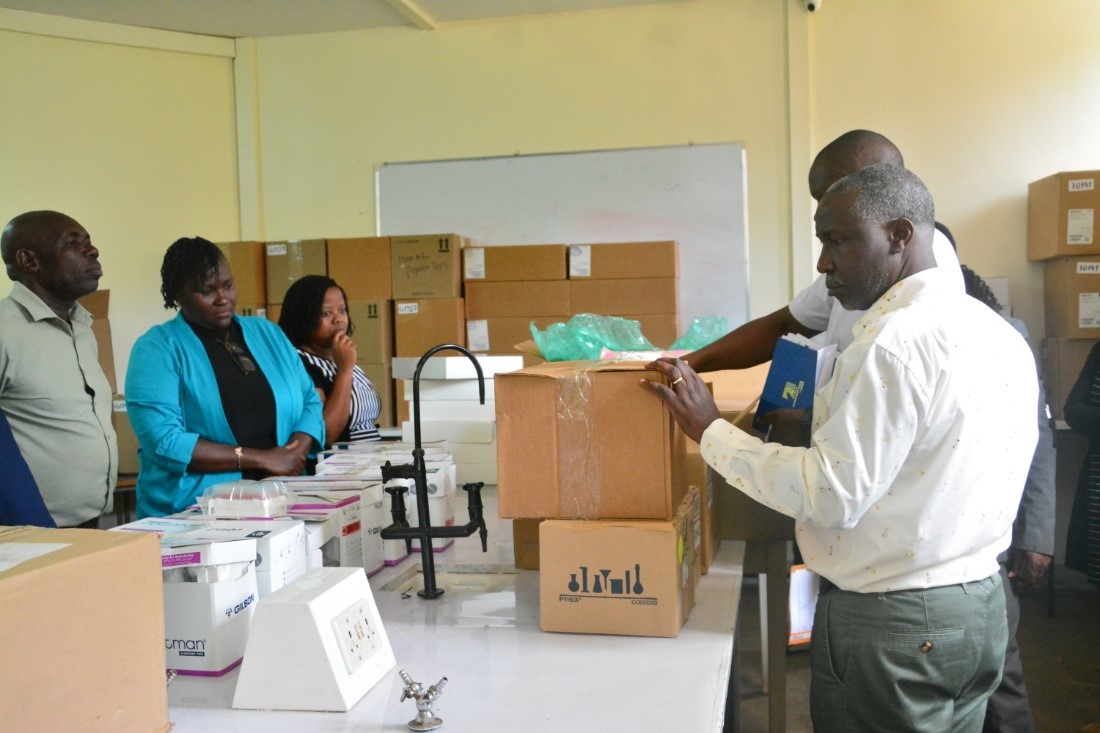
The equipment is expected to greatly enhance the University’s ability to conduct cutting-edge research and provide high quality education in the veterinary sciences. This donation showcases the growing partnerships and collaborations that Makerere University is building to drive innovation and academic excellence. With this valuable addition to its research infrastructure, Makerere University is poised to make even greater strides in advancing scientific knowledge and addressing critical challenges in the veterinary field and looks forward to the transformative impact it will have from training students on the latest analytical techniques to enabling faculty led studies that advance veterinary medicine.
The donors, the Instrumental Access is the flagship program of Seeding Labs, which is a US-based NGO with a mission to increase access to resources for science in developing countries. CoVAB’s participation in Instrumental Access makes Makerere University a member of the community of 137 Instrumental Access awardees in 39 countries worldwide.
The Department of Veterinary Pharmacy, Clinical and Comparative Medicine, Makerere University was chosen for the Instrumental Access award after a rigorous and competitive selection process that receives and evaluates applications from institutions around the world. To be considered, applicants outlined the ways that an infusion of scientific equipment would remove barriers to STEM education and research at their institution, paving the way for new avenues of scientific inquiry and expanding hands-on opportunities for students.
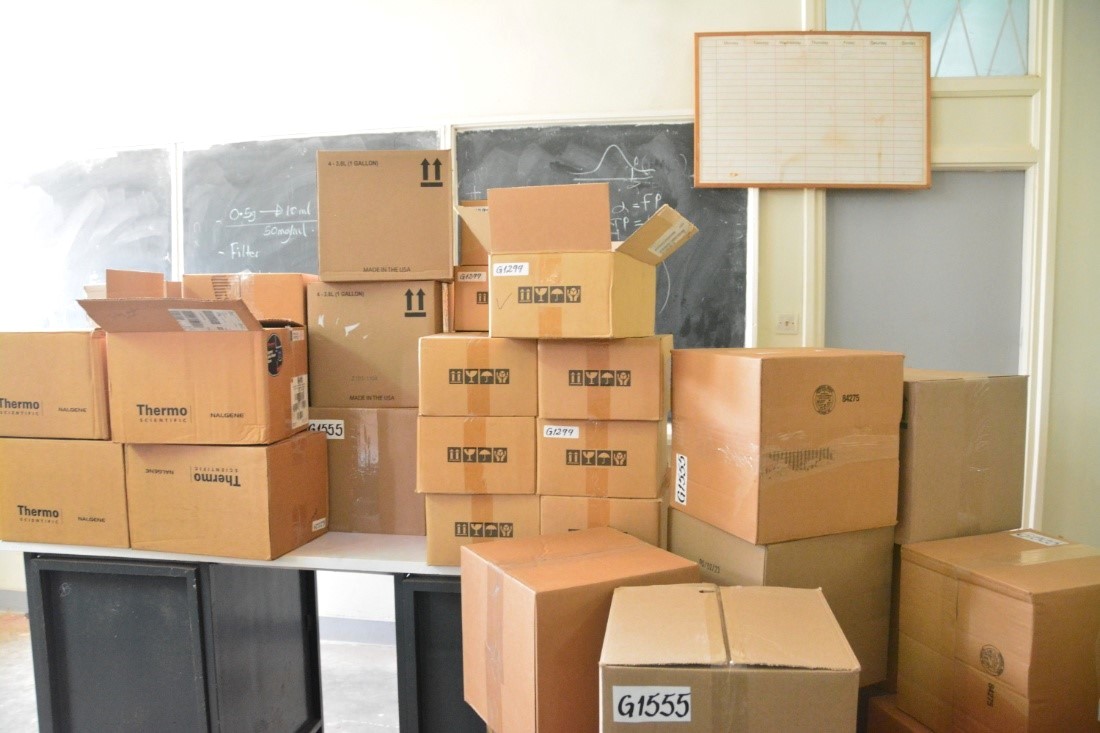
The equipment will provide a foundation for other critical resources that allow scientists to generate new knowledge, leverage sustainable funding, and better prepare university students for the scientific workforce and innovation economy.
More photos from the unveiling
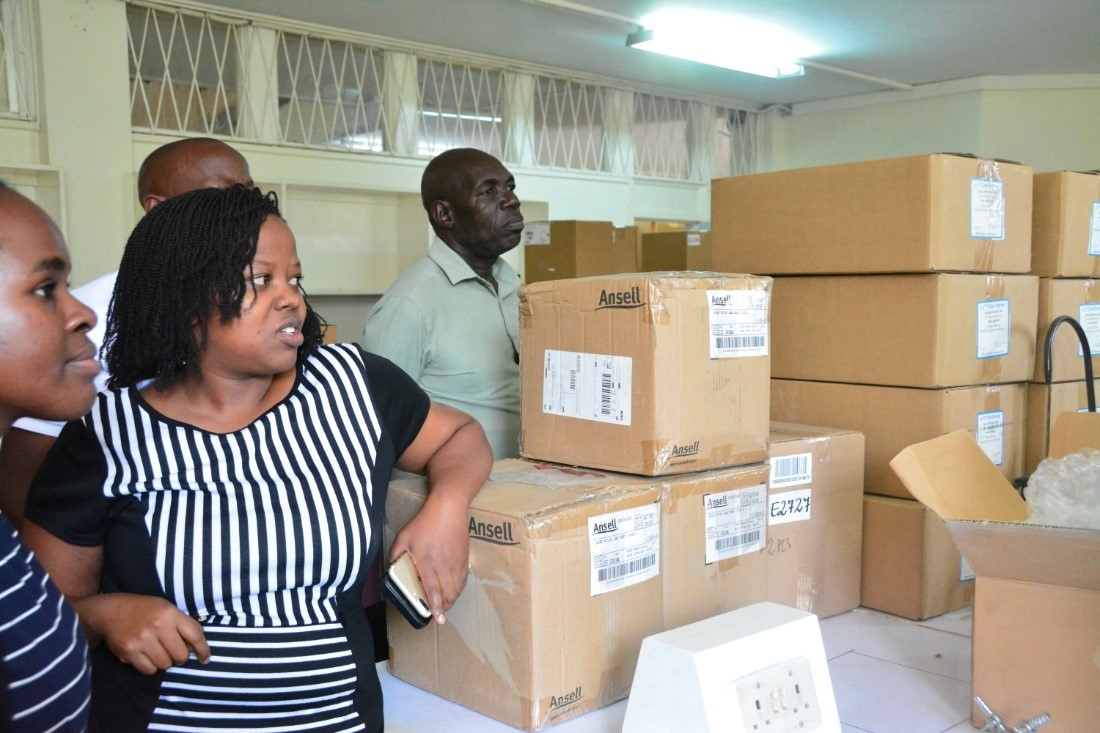
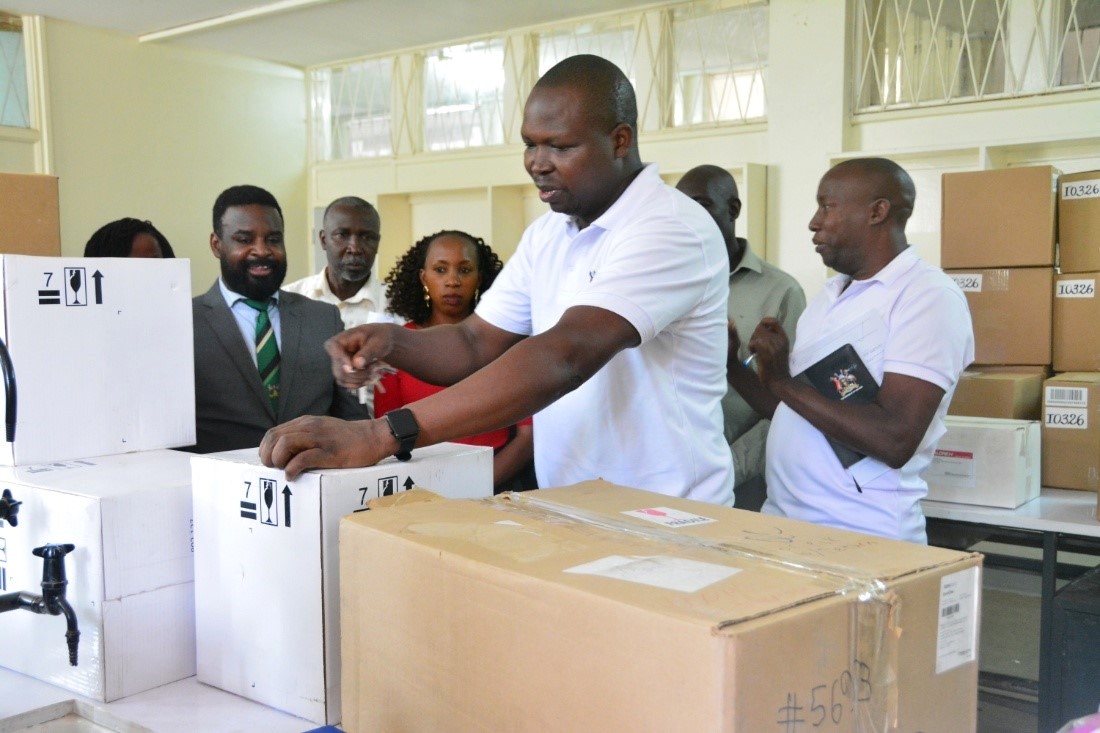
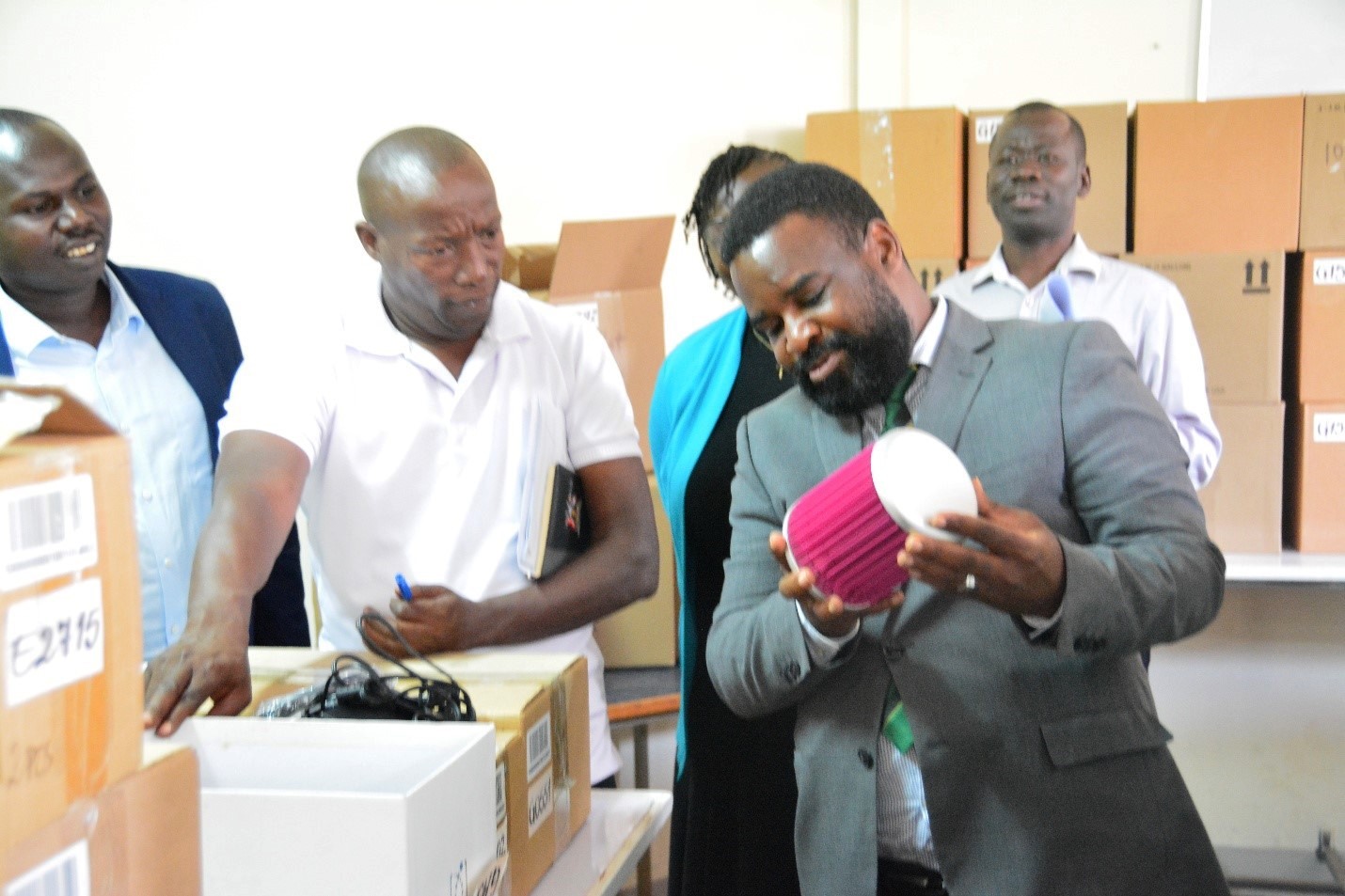
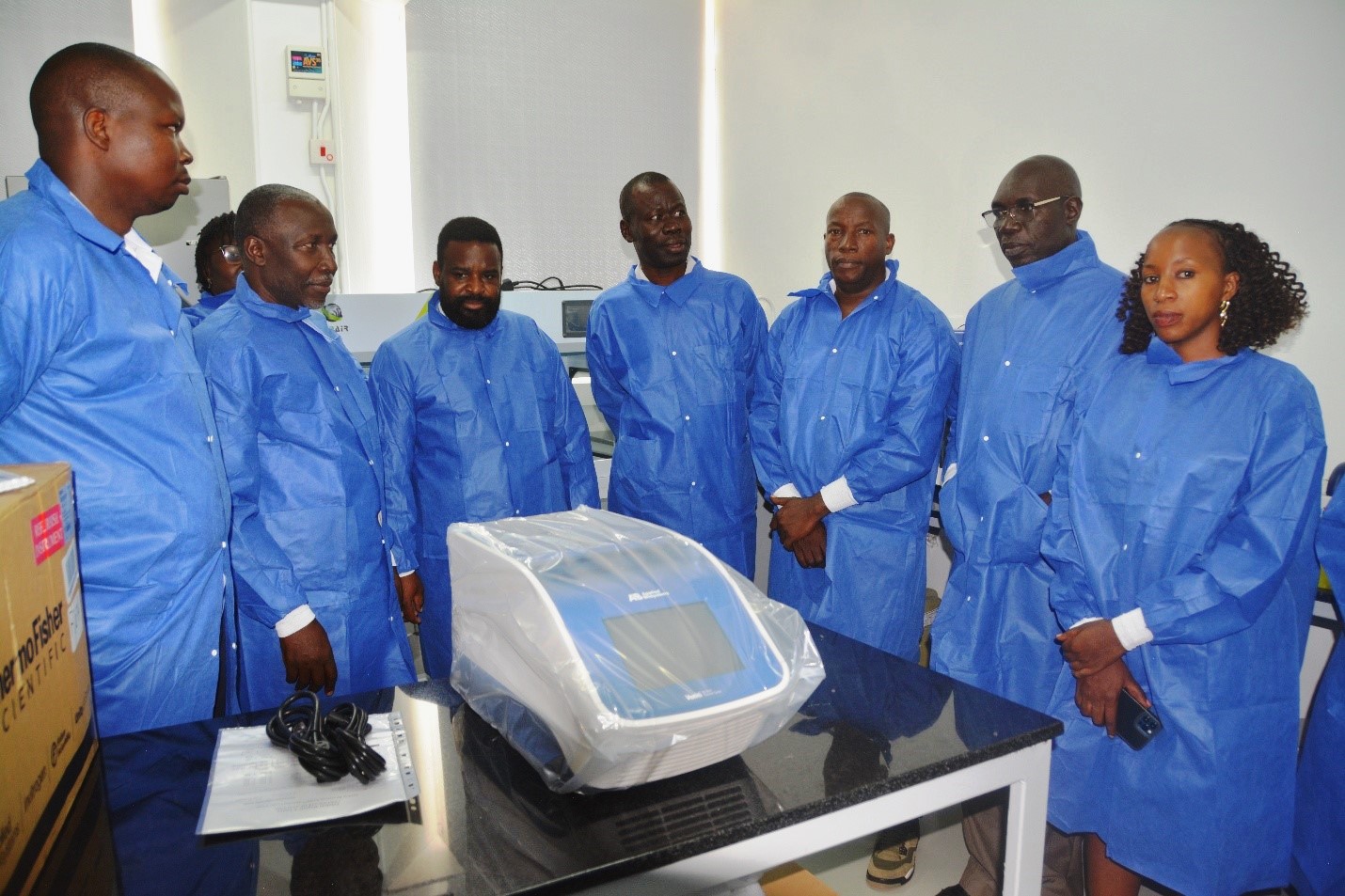
Trending
-

 General2 weeks ago
General2 weeks agoRe-advert: Admission to Undergraduate Programmes 2025/2026
-

 General1 week ago
General1 week agoRe-Advert for Applications for Diploma and Certificate Training
-

 General5 days ago
General5 days agoMakerere University Fees Waiver for 40 First Year Female Students 2025/2026
-

 General2 weeks ago
General2 weeks agoPress Statement on Ranking
-

 Health1 week ago
Health1 week agoCall for Applications: Responsible Conduct of Research (RCR) Training Course
